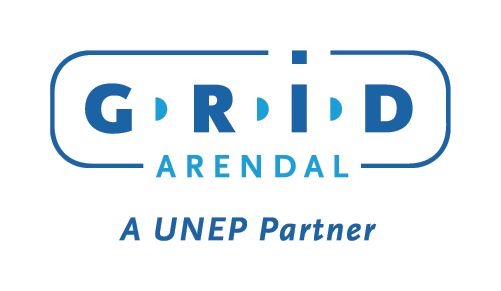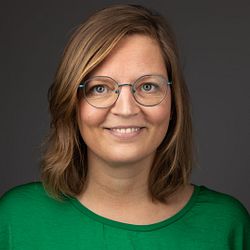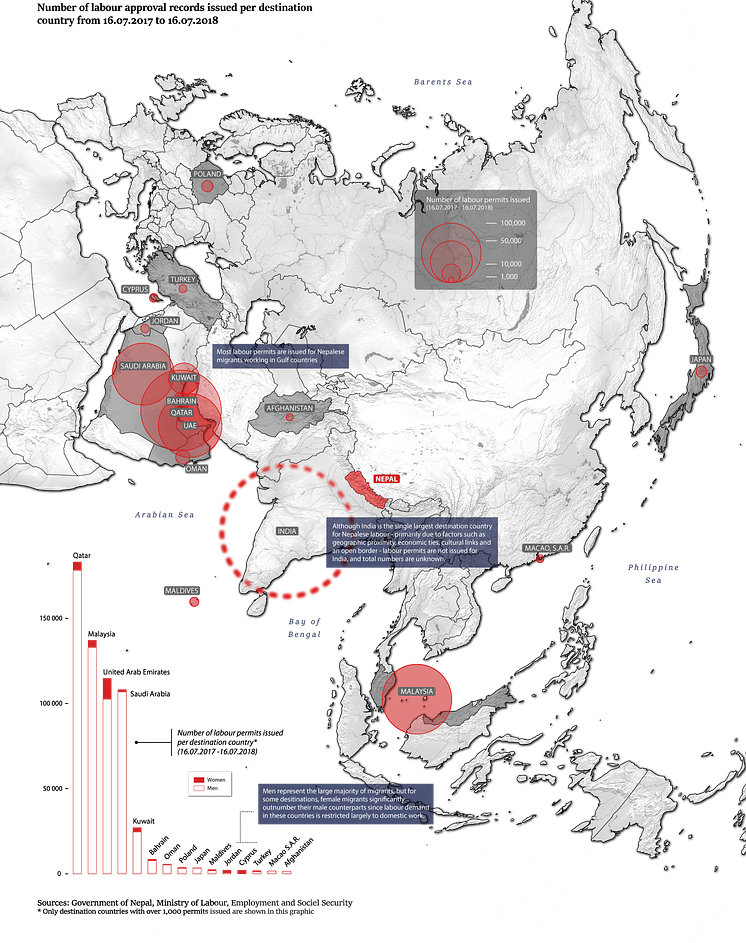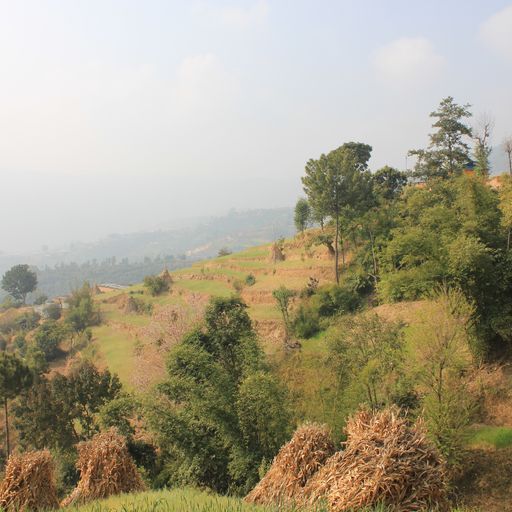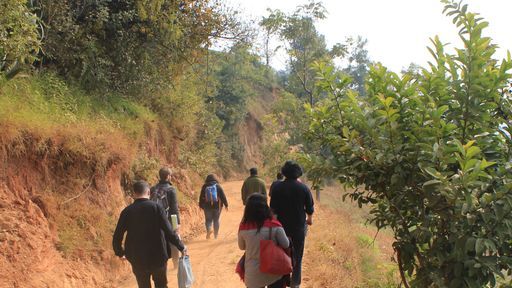
Press release -
Beyond the World Cup stadiums: Stories of outmigration from Nepal
Kathmandu, Nepal – 21 December 2022 - At any given time, one in every four households in Nepal has a member working abroad. Nepal has a large proportion of people migrating for work to Gulf states such as Qatar, helping to build World Cup stadiums and the United Arab Emirates, but also to Malaysia, and elsewhere.
But what does outmigration mean for the society and the families at home? A new storymap launched by the International Centre for Integrated Mountain Development (ICIMOD) and GRID-Arendal, dives into this issue, highlighting the challenges of migration and also the untapped opportunities.

Outmigration in Nepal
People have always been searching for better economic opportunities for themselves and their families. Historically migration has driven large economic and social shifts. Today climate change is exacerbating underlying social and economic drivers of migration in many places of the world.
In Nepal, it is primarily young men who migrate because of limited job opportunities at home. Most of them send part of their earnings back to their families. Such financial contributions – known as remittances - contribute significantly to the Nepali economy, amounting to around 20-30% of the Nepal’s Gross Domestic Product.
But as the storymap highlights, with this outmigration comes challenges – and benefits - for the families at home as well as for the workers abroad.
On the positive side, the income from migrant workers can give families better financial stability and diversified incomes help families to cope better the climate change impacts.
“Rural livelihoods in Nepal are very dependent on the climate and environment, making them highly sensitive to adverse impacts of climate change,” explains Amina Maharjan, Senior Migration Specialists at the International Center for Integrated Mountain Development (ICIMOD). “What we are seeing is that having a diversity of incomes sources, including remittances from abroad, helps rural families cope”.
On the negative side, migrants can face challenging working conditions abroad, and their problems can start even before they have left the country. Many take big loans to be able to pay for their travel abroad. And spouses at home are often confronted with changes in their social status and higher workloads on the farm.

Investing the money – and skills - wisely
Amongst the findings available in the storymap, migrant families and migrant workers would benefit from more structured support. This includes strengthening regulations to avoid migrants taking large, expensive and hard to repay loans to finance their travels aboard.
There are also untapped opportunities to guide and provide support to families to invest the remittance money – and the skills that returning migrants bring back with them – wisely.
“Outmigration is inevitable in Nepal's present context. The choice we have is what opportunities we create for retaining youth and how well we harness the skills and provide an enabling ecosystem to migrant returnees to grow and prosper,” says Surendra Raj Joshi, Senior Resilient Livelihoods Specialist, ICIMOD.
“Learning more about outmigration in Nepal gives us insight into the multiple and complex challenges people are facing both at home and abroad. With better knowledge and understanding we are better equipped to suggest and support changes to meet these challenges and improve both the socio-economic well-being of people and increase their level of resilience to environmental shocks, such as the impact of climate warming,” says Tina Schoolmeester, from GRID-Arendal.

Background:
In September 2021, the Government of Nepal adopted a Green, Resilient, and Inclusive Development (GRID) pathway and are working on realising it through a Strategic Action Plan. It aims to make use of Nepal´s natural capital to create jobs and ensure food as well as water security, where agriculture, sustainable forest management, eco-tourism and water resource management are key focus areas. Important development areas are renewable energy, urban development and resilient transportation infrastructure. In addition, mitigating social inequality through creating opportunities for the poor, women, youth, and informal workers will be an essential element. Incorporation of migration and remittances in the Strategic Action Plan will be important to link these aspects to Nepal´s sustainable development.
NOTES TO EDITORS
This article is free to use. Proposed citation: GRID-Arendal & ICIMOD (2022).
For more information, please contact: Nand Kishor Agrawal, Regional Programme Manager, Adaptation and Resilience Building, nandkishor.agrawal@icimod.org.
Stories of outmigration from Nepal: The complex and diverse, positive and negative.
Related links
Topics
Categories
Any questions?
Please contact:
press@grida.no
Head of Media Relations
Maria Dalby
+47 9064 0556
Maria.dalby@grida.no
